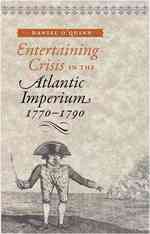Full Description
This book examines the connection between sociology and international military affairs by analysing the work of key social and political scientists in the field.
The book demonstrates the renewed relevance of older sociological concepts such as imitation, unanticipated consequences of policies, structural violence, the governance of the commons, collateral damage, McDonaldization, the Garrison State and many others. It also proposes new notions, such as the dynamics of hostilization (as a twin concept of criminalization) and security panic. The work illustrates these concepts through examples from today's world - including Gaza, the war in Ukraine, conflicts in Africa, and riots in cities such as Amsterdam. It also uses material from conflicts and military actions in the recent past, such as in Rwanda, Bosnia, and Afghanistan. The book is a companion volume to the author's 2018 Sociology and Military Studies, which examined the link between sociology and the military by studying the work of key foundational thinkers in the field. As a follow-up, the present book presents 14 new authors from the field of general sociology and politics but takes a broader approach in terms of application, including the dynamics of politics, conflict and war.
This book will be of great interest to students of the social and political sciences, military studies, civil-military relations, war and conflict studies and International Relations in general.
Contents
Introduction 1. Gabriel Tarde: Interaction, imitation, democracy and innovation 2. Pitirim Sorokin: War and revolution, catastrophes and calamities, international relations, altruism 3. Robert K. Merton: "Theories of the middle range" in the military 4. Howard S. Becker: Professional identification - from labelling to hostilization 5. James C. Scott: State interventions vis-à-vis the weapons of the weak 6. Fatema Mernissi: The world of Islam, religious influences and women in military affairs 7. Robert Axelrod: Strategic handling of (rising) conflicts 8. Saskia Sassen: Global cities at war, expulsion and migration, information technology in the military 9. Elinor Ostrom: Governing the commons in security matters 10. Theda Skocpol: Revolutions, welfare policies and the military 11. Johan Galtung: From direct, structural and cultural violence to peace 12. Randall Collins: Prediction, interaction rituals and micro-violence 13. Zygmunt Bauman: Holocaust, modernity and collateral damage 14. George Ritzer: Globalization, McDonaldization and (ir)rationality in the armed forces 15. Conclusions: From war to peace (eventually)








